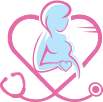Pregnancy cravings are one of the interesting changes of this period. Pregnancy can bring a range of physical changes and symptoms, from morning sickness to backaches. However, one of the most fascinating aspects of pregnancy is the sudden onset of cravings for certain foods. While some cravings may be fairly common, such as cravings for pickles or ice cream, others can be quite unusual.
What are pregnancy cravings?
Pregnancy cravings are a term for the strong desire to eat certain foods during pregnancy. These cravings are often accompanied by an urgency that is difficult to resist.
50 to 90 percent of women experience cravings during pregnancy. Although there is no confirmed reason for cravings, it is thought to be caused by hormonal changes and the body’s increased nutritional needs during pregnancy.
Cravings usually start in the first trimester and peak in the second trimester. They can also occur at any time during pregnancy. The good news is that cravings usually don’t last the entire pregnancy. They usually last for a few days, then change and disappear completely after delivery.

What causes pregnancy cravings?
As a woman, you may have experienced cravings in the days before your period starts. Hormones are at their highest during this time and tend to trigger cravings.
Hormonal factors
During pregnancy, hormones change and can affect taste receptors, causing women to crave certain foods or eat more. These hormonal changes may also cause you to dislike foods you normally enjoy.
During pregnancy, a woman’s body produces more estrogen and progesterone. While these hormonal changes are necessary for the development of a healthy baby, they can also cause food cravings. Hormones like human chorionic gonadotropin and progesterone change the way we smell and taste, making certain foods more or less appealing.
Additionally, when we experience stress, our bodies naturally release a stress hormone called cortisol. Once released, this hormone prepares the body for fight or flight, providing immediate energy to large muscle groups. This high cortisol level increases appetite, causing you to crave sugary and fatty foods more often.
Nutritional needs
While cravings are common and normal during pregnancy, some of them may also have health-related causes. For example, cravings for fruit, chocolate, milk, or other sweets may mean that a woman’s body has specific nutritional needs:
- Cravings for fruit may indicate low vitamin C levels.
- Cravings for dairy may indicate a calcium deficiency.
- Cravings for high-calorie foods may be related to the increased calorie needs for a healthy pregnancy.
- Cravings for sour foods and salty snacks may be to retain fluids and replace sodium losses that usually occur in the first trimester of pregnancy.

Psychological reasons
In addition to hormonal and nutritional changes, pregnancy cravings can also be caused by psychological or environmental factors. For example, when someone tells you that they craved hamburgers and chips during their pregnancy, this may psychologically trigger your mind to want these foods, too.
10weird and wonderful pregnancy cravings
Dirt and clay
One of the most unusual pregnancy cravings is eating dirt or clay. This is known as pica, a condition that involves the craving and consumption of non-food substances. While the exact cause of pica is unknown, it is thought to be linked to nutritional deficiencies, such as anemia.
Chalk
Similar to craving dirt or clay, some pregnant women may experience a craving for chalk. This can be especially dangerous, as consuming chalk can lead to serious health problems, such as lead poisoning.
Coal
Another strange craving that some pregnant women experience is the desire to eat charcoal. Although it may seem strange, charcoal contains a number of minerals that can be beneficial during pregnancy, including iron and calcium. However, consuming charcoal can also be harmful, as it can lead to digestive problems and constipation.
Ice
Craving for ice is a fairly common pregnancy symptom and is thought to be linked to anemia. While it may seem harmless, eating large amounts of ice can damage teeth and lead to digestive problems.
Sour foods
Many pregnant women crave sour foods, such as pickles or lemons. This is thought to be related to changes in taste buds during pregnancy and a desire for more acidic foods to aid digestion.
Spicy foods
Another common craving during pregnancy is spicy foods, such as hot sauce or jalapenos. This is also thought to be related to changes in taste buds and a desire for foods that can help speed up the metabolism.
Red meat
Some pregnant women may experience cravings for red meat, such as steak or hamburgers. This is thought to be related to the need for more protein during pregnancy and a desire for foods high in iron.
Fruit
Fruit cravings are a common pregnancy symptom and are thought to be linked to a desire for more vitamins and minerals. Some pregnant women may also crave certain fruits, such as watermelon or strawberries.
Peanut butter
Peanut butter is another common pregnancy craving, thought to be linked to a need for more protein and healthy fats. Some pregnant women may also crave other nut butter, such as almond or cashew.

Ice cream
No list of pregnancy cravings would be complete without mentioning ice cream. This sweet treat is a classic pregnancy craving and is thought to be linked to an increased need for calcium and other nutrients.
Is there a way to manage weird pregnancy cravings?
Unfortunately, it’s not uncommon for pregnant women to only eat healthy foods, and choosing the most unusual pregnancy cravings, such as non-food items, isn’t exactly great. While cravings are entirely natural and generally safe, at some point, most women want to know how to manage and control them to eat a healthier diet.
Maintain a balanced diet
First, you must ensure you get all the nutrients you need and eat enough daily. It’s best to consult a healthcare provider to identify the nutrients your body needs. However, there are simple steps you can start on your own.
For example, start your day with a breakfast rich in protein and healthy fats to help you feel fuller for longer. Maintaining a healthy diet is important, but having a sweet or fatty treat is okay now and then. Maintaining a balance can help reduce the intensity of cravings and make them more manageable.
Choose healthy alternatives
When cravings are so intense that you can’t stop thinking about them, try to manage them by choosing healthier options, such as fruit instead of candy. Gradually increase the number of times you choose healthy options.

Stay hydrated
Drinking enough water will generally help control your appetite. When you have a craving, drink a full glass of water and wait 10 minutes to see if the craving goes away.
Manage stress
There are several ways you can improve your stress management. First, try to have a healthy sleep schedule, getting at least eight hours of quality sleep per night. Meditation is also a good way to reduce stress levels. Moderate physical activity, such as yoga and walking, at least two to three times a week, is also very helpful for stress management during pregnancy.
The bottom line
Pregnancy cravings are a fascinating and often perplexing aspect of pregnancy. While some cravings are relatively common and easily understood, others can be quite unusual and even potentially harmful. It’s important to remember that while cravings are normal, it’s crucial to maintain a balanced diet and prioritize nutrient-rich foods. If you’re experiencing intense or unusual cravings, consult your healthcare provider to ensure your nutritional needs are met and address potential concerns. By understanding the underlying causes of cravings and implementing strategies to manage them, you can navigate this unique phase of pregnancy with both health and peace of mind.
Additional questions
- When do pregnancy cravings typically start?
Pregnancy cravings typically start in the first trimester, often around the fifth week. However, they can start as early as the first week of pregnancy and continue throughout the pregnancy, although they often peak in the second trimester. It’s important to note that not all pregnant women experience cravings, and the intensity and types of cravings can vary widely from person to person.
- What shouldn’t a pregnant woman eat?
To ensure a healthy pregnancy, avoid raw or undercooked meat, poultry, seafood, unpasteurized dairy, soft cheeses, and raw eggs. Limit high-mercury fish and excessive caffeine. Most importantly, completely abstain from alcohol.
- Is it okay to eat ice cream during pregnancy?
Yes, it’s generally safe to enjoy ice cream during pregnancy. Opt for pasteurized options to reduce the risk of foodborne illness. While ice cream can be a delicious treat, it’s best to consume it in moderation due to its sugar and calorie content. If you have specific dietary concerns, consult with your healthcare provider.
- How long do cravings last?
The duration of pregnancy cravings varies from woman to woman and can even change throughout pregnancy. Some women may only have cravings for a few weeks, while others may have them throughout pregnancy. Cravings often subside after delivery, but it’s not uncommon for some long-term preferences to persist.
- What are non-food cravings in pregnancy?
Non-food cravings during pregnancy, often referred to as pica, involve the desire to consume non-edible substances. Common examples include:
- Laundry detergent
- Rubber
- Chalk
- Sponges
- Matches
- Sawdust
- Coal
- Soap
- Petrol
- Toilet paper
- Talcum powder
References
https://www.emmasdiary.co.uk/blog/the-20-weirdest-pregnancy-cravings-ive
https://femia.health/health-library/pregnancy/pregnancy-health/weird-pregnancy-cravings/
https://www.imaginatal.co.uk/post/our-weird-and-wonderful-pregnancy-cravings
https://mtauburnobgyn.com/2023/08/10-weird-and-wonderful-pregnancy-cravings/




